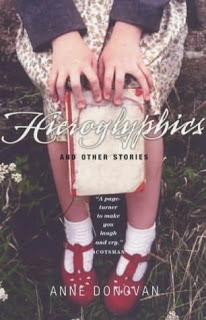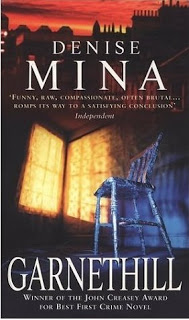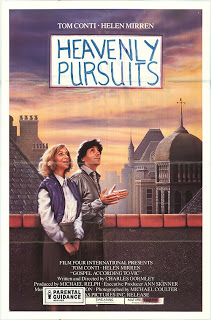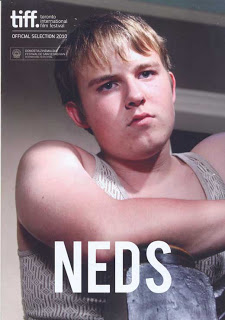Saturday, October 22, 2016
Wednesday, December 03, 2014
Simply Thrilled: The Preposterous Story of Postcard Records by Simon Goddard (Ebury Press 2014)
Tuesday, September 10, 2013
The Busconductor Hines by James Kelman (Phoenix 1984)
Wednesday, September 21, 2011
Friday, April 01, 2011
Saturday, August 07, 2010
Hieroglyphics by Anne Donovan (Canongate Books 2001)

Ma mammy thoat ah wis daft, naw, no daft exactly, no the way wee Helen fae doon the street wis. Ah mean she didnae even go tae the same school as us an she couldnae talk right an she looked at ye funny and aw the weans tried tae avoid playin wi her in the street. Ma mammy knew ah could go the messages an dae stuff roond the hoose and talk tae folk, ah wis jist daft at school subjects, the wans that that involved readin or writin oanyway. Fur a while efter she went up tae see the teacher ah got some extra lessons aff the Remmy wummin but ah hated it. She wis nice tae me at furst but then when ah couldnae dae the hings she wis geein me she began tae get a bit scunnered. A hink she thoat A wis lazy, and ah could never tell them aboot the letters diddlin aboot, and oanyway, naebdy ever asked me whit it wis like. They gave me aw these tests an heard ma readin and tellt ma ma ah hud a readin age of 6.4 an a spellin age of 5.7 and Goad knows whit else, but naebdy ever asked me whit wis gaun oan in ma heid. So ah never tellt them.
(From the short story, 'Hieroglyphics'.)
Thursday, October 01, 2009
Friday, August 28, 2009
Thursday, July 23, 2009
Still Midnight by Denise Mina (Orion Books 2009)

People didn't move schools in those days. Danny and Alex went all the way through primary school together, and secondary. And all the time there was the ever present threat of their mothers fighting, of the other boot falling.
Monday, July 20, 2009
Tuesday, May 12, 2009
The Borough by Michael Cannon (Serpent's Tail 1995)

I came here by accident. It took me a while to realise that the Borough was unique, even for Glasgow. It is poor, and yet it lives cheek-by-jowl with the wealthiest districts which ring the University precincts. This is a strange symbiosis. The University surmounts the hill, its Gothic pile silhouetted by day and floodlight by night. The spire is a landmark for miles. Many of the academics live within walking distance. Small mews flats off cobbled lanes now fetch exorbitant prices. People with more money than sense pay for the prestige of living where a horse was once stalled. This is the city's Bohemia. Across the Kelvin immense town houses, built for the tobacco barons when Glasgow was still the second city of the empire, have been converted into student residences.
Friday, October 17, 2008
Strange Loyalties by William McIlvanney (Harcourt Brace 1991)

'Four experts had an appointment with an ordinary man. They needed him to ratify their findings or anything they achieved would be meaningless. As they drove to meet him, they knocked down a man on the road. He was dying. If they tried to save him, they might miss their appointment. They decided that their appointment, which concerned all of us, was more important than the life of one man. They drove on to keep their appointment. They did not know that the man they were to meet was the man they had left to die.'
I wish I had more whisky.
Tuesday, August 12, 2008
Fresh by Mark McNay (MacAdam Cage 2007)

Fresh chickens to be sold in butchers and supermarkets for the ease of the purchasing public. Fresh chickens you assume have been killed recently. You picture a redbrick farmyard with purple foxgloves growing in a corner. The healthy smell of shite. An old 1950s tractor quietly rusting on flat tyres, only useful to the robins that nest under the seat. The farmer's wife comes out of the door, pulls a chicken from the ground it was idly pecking, and twists its neck with her fat powerful hands. She sits on a stool, places the quivering bird on her lap, and plucks it while it's warm. She sings a song of somebody's lover lost in a foreign war. She stuffs hand-stitched pillows with the feathers and sells them on the local market on a Wednesday afternoon. The plucked and dressed chiken is trussed ready to be hung that afternoon in the butcher's and you walk in and buy a bird whose pulse has barely died in its throat.
The fresh chickens Sean handles are driven to the factory in shoebox-sized containers packed on the trailer of an articulated truck. The driver flicks a roll-up butt out of the window and calls for Rab, who sidles out of his hut and guides the lorry into the loading bay. Strong forearms reach into the shoeboxes and drag their prey into the artificial light and hang them by the ankles on a hook. They fly along, upside down, flapping their wings, trying to escape, shitting down their chests, squawking and pecking at their mates. The hooks drag them into a tank of water where an electric current stops their hearts moments before rubber wheels grind the feathers from their skin.
Sunday, July 13, 2008
Garnethill by Denise Mina (Carroll & Graf Mystery 1998)

Saturday, May 10, 2008
Do They Mean Us? #14
"The Labour Party, Trades Council and the STUC . . . were largely responsible for securing the biggest postwar demonstration in Glasgow till then, at the start of the 1960s. Incidentally, that was the demonstration that produced the slogan to end all sectarian slogans. Just as we were turning round the corner of Sauchiehall Street two grim stalwarts of the Socialist Party of Great Britain were standing heralding the march with a huge banner and slogan which read: ‘This demonstration is useless – You must first destroy capitalism.” [Janet and Norman Buchan, “The Campaign in Scotland”, in The CND Story, edited by Hohn Minnion and Philip Bolsover, 1983, p. 53.]
Dusting down an old series as a stop gap for the blog. Truth is that bloggers block has kicked in as I am too busy wishing that I was at this Conference 3470 miles away. *Sigh*.
I originally read the quote cut and pasted above years ago in an old copy of the Socialist Standard. It's definitely SPGB old skool. How could it not be? What with the incident involving the original 'Cold Water Brigade, Glasgow Branch, and dating from the height of the first wave of the nuclear disarmament, it reinforces all the preconceptions held against us by the 'Do something NOW?' brigade, and also makes our (few) political friends wince in partial recognition.
Part of me would love to pretend that we're not really like this - or that we've mellowed down the years - but sometimes you have to put your hands up to the fact that it's best to be blunt about such matters. Over forty years later and there's three of us doing a stall at the recent Brooklyn Peace Fair, and what's our opening line to the people hovering by our stall?:
"If you want to get rid of war, you have to get rid of capitalism."
The haircuts and the clobber may have changed down the years, but the patter's just the same.
Sunday, March 23, 2008
If Chic Murray had subscribed to War Commentary
Hot on the heels of attending the meeting 'Towards a synthesis of Anarchism and Marxism?' at last weekend's Left Forum, where one of the panel speakers, Ruth Kinna, spoke on “Bridging Differences Through Revolutionary Action: Aldred on Anarchism and Marx”, comes news - via a SPGB google alert - of a fascinating article on the anarchist movement in the 1940s in Glasgow that has recently been posted on the LibCom website.
'Anarchism in 1940s Glasgow' contains an interview with Charlie Baird Sr that dates from '77 and the transcribed reminiscences of a roundtable discussion of Glasgow based Anarchists (1940s vintage) that dates from 1987.
Both pieces are fascinating insights into a tumultuous period for radical politics, and, like Ruth Kinna's talk at the Left Forum, it was a blast from the past for me 'cos many, many years ago, I went through a period of reading up on this subject in depth.
Not for any academic reasons, but simply because I was combining my interest in the history of radical politics with my interest in the history of Glasgow. I was reading John Taylor Caldwell's biography of Guy Aldred; Mark Shipway's book on Aldred and Sylvia Pankhurst; Wildcat's mega-pamphlet on the APCF; and Freedom's hundredth anniversary works on their tradition amongst others at a time when I would have been better served listening to Pop Will Eat Itself and getting drunk on snakebite. Maybe in my next life.
PS - Chic Murray? War Commentary? Chic Murray was a brilliant Scottish comedian who is probably best known today - if at all - for playing the headmaster in 'Gregory's Girl', and War Commentary was the name of Freedom during World War II (it's a convoluted story . . .don't ask me now), and Eddie Shaw came across as that sort of speaker even before I spotted the reference in the roundtable expression.
It seems that Glasgow has a history of outdoor speaking that comprised of half polemicist, half patter merchant.
Wednesday, October 10, 2007
Hurry up and review 'The Last Breath'
Via google alerts for Denise Mina comes a couple of good reviews by the Grumpy Old Bookman blog of the first two Paddy Meehan books:
The Field of Blood The Dead Hour
I like how Michael Allen (G.O.B) cuts to the chase when writing about 'The Field of Blood':
As an evocation of time, place, and atmosphere, this book is, I am sure, the equal of any Booker shortlisted book, but it is also, fortunately, much more. Because it's a crime novel we have a good strong narrative thread, and we are spared the arty-farty fancypants bullshit."
What the review does not pick up on, and something that I still have difficulty getting my head around is Denise Mina's insistence that the Catholic community in Scotland was still experiencing as late as the early eighties an institutionalised discrimination that was so deep rooted in Scottish society that even Paddy Meehan becoming a 'copyboy' on a newspaper was seen as something out of the ordinary.
I'm not suggesting that such a bigoted culture didn't exist, merely acknowledging that I'm perhaps too young to fully recognise that time and noting how far we've come between then and now.
I'm looking forward to Allen's future review of 'The Last Breath', which has already become my favourite book in the Paddy Meehan series.
Friday, July 13, 2007
Genuine names from Glasgow's 5-a-side league

Hat tip to Will Rubbish and 'SP'.
My favourites have to be Bayern Bru, FC Copenbadly and *cough* Torpedo Belgrano.
I believe that there's a bit of a tussle at the moment between Hajduk Spliff and LSD Eindhoven over the signature of Richie Hart.
Steaua Needarest Dyslexia Untied Fatzio Red Star Bellend Sporting Lesbian Grass Smokers Zurich Hajduk Spliff LSD Eindhoven Albion Hungovers Real Sosobad Shackthar Senseless Hardly Athletic St. Mirnoff Real Ale Madrid Fred West Ham Unreal Madrid Rapid Viagra Barearselona Bayern Bru Athletico Madras Deportivo Lack a Talent Bayer Neverlusen Borussia Nosobad Sparka Fag Graham Rix U16's Big Bertha Berlin Inter Masister Substandard Liege Torpedo Belgrano Bayer Leverarchfile FC Copenbadly Sporting Abeergut Dinamo Mince Red Stripe Belgrade Fake Madrid Unathletic Madrid Outer Milan
Sunday, May 20, 2007
Heartbreak Hampden
Whatever. I'm guessing that there is a connection between this heartbreak and this humping from Sunday:











